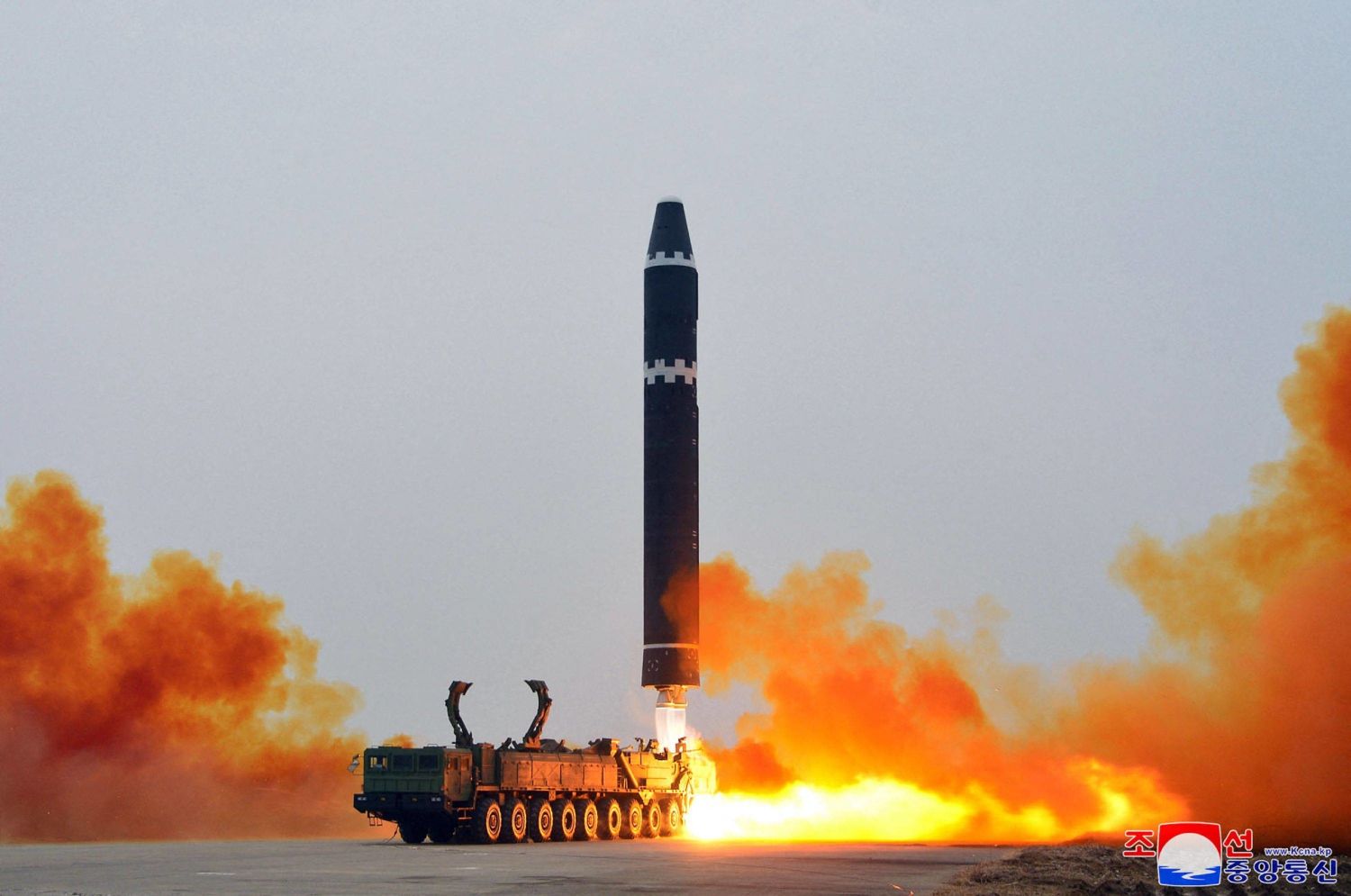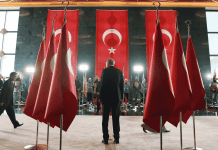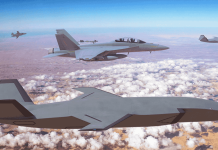In a handout of March 24, 2023, the US Embassy in Canberra said that Australia, the United Kingdom, and the United States announced AUKUS – a new security partnership that will promote a free and open Indo-Pacific that is secure and stable.
US F-35 Fighters ‘Radar Attack & Buzz’ Russian Su-34, Su-35 Jets Over Syria As Fight Against ISIS Resumes
It said: “The first major initiative of AUKUS was our historic trilateral decision to support Australia acquiring conventionally-armed, nuclear-powered submarines (SSNs). Today, we announce our pathway to achieve this critical capability.
“Together, we will deliver SSN-AUKUS – a trilaterally-developed submarine based on the United Kingdom’s next-generation design that incorporates technology from all three nations, including cutting-edge US submarine technologies. Australia and the United Kingdom will operate SSN-AUKUS as their submarine of the future. Australia and the United Kingdom will begin work to build SSN-AUKUS in their domestic shipyards within this decade.”
Another Component
Nearly five months later, Reuters informed on August 14 that the US, Japan, and South Korea would launch a series of joint initiatives on technology, education, and defense when the countries’ leaders gather at Camp David, Maryland, on Friday, August 18.
Citing a White House announcement, the CNN edition of July 28 reported that President Joe Biden will host Japanese Prime Minister Kishida Fumio and South Korean President Yoon Suk Yeol at Camp David next month to bring the key Asian allies closer. Giving a clue to the agenda for the trilateral meeting,
“At the summit, the leaders will celebrate a new chapter in their trilateral relationship as they reaffirm their strong bonds of friendship and the ironclad alliances between the United States and Japan, and the United States and the Republic of Korea,” the White House wrote in a statement announcing the meeting.
“The three leaders will discuss expanding trilateral cooperation across the Indo-Pacific and beyond – including addressing North Korea’s continued threat and strengthening ties with ASEAN and the Pacific Islands.”
Pros And Cons
It is learned that the summit is unlikely to produce a formal security arrangement that commits the nations to each other’s defense; they may agree to a mutual understanding about regional responsibilities and set up a three-way hotline to communicate in times of crisis. The emphasis is on an “understanding of regional responsibilities.”
How does the element of responsibility come in? Two things need to be noted. The first is the recent testing of ballistic missiles by North Korea, and the second is the need for South Korea and Japan to sink their old differences and understand the serious dimensions of Pyongyang’s belligerent attitude.
President Biden feels that in the backdrop of a serious situation in the Korean Peninsula, the relationship between South Korea and Japan, with its acrimonious past, needs to be buried and a pragmatic view of the ground situation taken in due earnest. Therefore, to formalize their ties and cooperation, the trilateral meeting of August 18 at the Presidential retreat in Maryland’s Catoctin Mountains will be their first annual gathering.
In March last, South Korea and Japan held their first joint summit after a gap of nearly twelve years. They have made some progress in easing tension after years of disputes, including some related to Japan’s 1910-1945 occupation of Korea.
Washington has a formal collective defense arrangement with both Japan and South Korea. The rising threat from China catalyzes these joint defense arrangements. But North Korea’s threatening posture induces Washington to persuade the two countries to cement their relations and, if needed, prove a formidable deterrent to their nefarious designs.
A US official has been quoted saying that the US anticipates some steps that would bring the three countries closer in the security realm, and doing so would add to their collective security strategy.
The question is how far are the three stakeholders confident they will be guided by their understanding of the ground situation and what responsibilities it brings to their doorsteps. New areas of coordination and ballistic missile defense are of much importance.
These deliberations have proved futile in deterring Pyongyang’s pursuit of long-range nuclear weapons. Such meetings continued during the current year. Viewed from that angle, it would be too simplistic to expect a positive result from the impending Camp David summit. This notwithstanding, Joe Biden has placed trust in Prime Minister Kishida of Japan since the Japanese leader pushed through an overhaul of the country’s national security planning late last year. That paved the way for a visit by Kishida to the US in January last.

Expectations from the South Korean leader Yoon are high. He tried to thaw relations with Tokyo when he announced a proposal to resolve an impasse over Koreans forced to work for Japanese companies during World War II in March. He was the first President of South Korea to visit the US in twelve years.
Conclusion
Though China has warned all its adversaries, especially the US, that there is only one China and Taiwan cannot aspire to be an independent and sovereign state, it has been cautious not to escalate the tension by taking a drastic step leading to the island’s annexation. Rapprochement between Japan and South Korea should have been the natural setting in the background of common threats from China and North Korea.
Joe Biden’s effort to pursue the two countries to understand their position in the face of threats from China and its proxy has significance and should be appreciated. It is a balancing act. The trilateral alliance supports AUKUS. It will further ensure the freedom of navigation along the strategic trade channels of the Indian Ocean.
- KN Pandita (Padma Shri) is the former Director of the Center of Central Asian Studies at Kashmir University. Views expressed here are of the author’s.
- Mail EurAsian Times at etdesk(at)eurasiantimes.com




